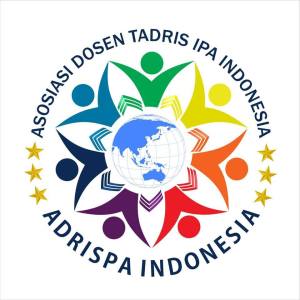DEVELOPING ELECTRONIC STUDENT WORKSHEET (E-WORKSHEET) BASED PROJECT USING FLIPHTML5 TO STIMULATE SCIENCE PROCESS SKILLS DURING THE COVID-19 PANDEMIC
DOI:
https://doi.org/10.21154/insecta.v2i1.2555Keywords:
E-Worksheet, FlipHTML5, Science Process SkillsAbstract
This research aims to develop worthy (in terms of validity and practicality) Electronic Student Worksheets (E-Worksheet) based project using FlipHTML5 in light interference topic. E-Worksheet developed to stimulate student’s science process skills. This research used design and development research (DDR) which consisted of 4 stages, namely analysis, design, development, and evaluation. The results of the product validity were assessed by experts consisting of two high school physics teachers and a lecturer from the physics education department of the University of Lampung who got an average score of 3.56 with the very valid category. The E-Worksheet practicality in terms of the legibility, the student views that was completed by 9 students, and the teacher views that was completed by 5 high school physics teachers got an average percentage of 90% with the very practical category. These results showed that E-Worksheet were valid and very practical to stimulate student’s science process skills. Based on teacher views, the E-Worksheet is very possible to be implemented in online and face-to-face learning especially in the covid-19 pandemic era. The E-Worksheet can be used as multimedia to support online learning.References
Aktamis, Hilal., & Ergin Omer. (2008). The effect of scientific process skills education on students' scientific creativity, science attitudes and academic achievements. Asia-Pacific Forum on Science Learning and Teaching, 9 (1), 1”“21.
Ambrose, Bradley S., Shaffer, Peter S., Steinberg, Richard N., & McDermott, Lilian C. (1998). An Investigation of Student Understanding of Single-Slit Diffraction and Double-Slit Interference. American Association of Physics Teachers, 67 (2), 146-155. https://doi.org/10.1119/1.19210.
Apriyanto, Candra., Yusnelti, & Asrial. (2019). Development of E-LKPD With Scientific Approach of Electrolyte and Non Electrolyte Solutions. Journal of the Indonesian Society of Integrated Chemistry, 11 (1), 38”“42.
Arikunto, Suharsimi. (2011). Research Procedure A Practice Approach. Jakarta: Earth Literacy.
Aydogdu, Bulent., Buldur, Serkan., & Kartal, Sabahattin. (2013). The Effect of Open-ended Science Experiments based on Scenarios on the Science Process Skills of the Pre-Service Teachers. Social and Behavioral Sciences, 93, 1162-1168. https://doi.org/10.1016/j.sbspro.2013.10.008. 2013.
Blumenfeld, Phyllis C., Soloway, Elliot., Marx, Ronald W., Krajcik, Joseph S., Guzdial, Mark., & Pallincsar, Annemarie. (1991). Motivating Project-Based Learning Sustaining the Doing, Supporting The Learning. Educational Psychologist, 26(3&4), 369-398.
Camarao, Michael Kennedy E., & Nava, Fe 'Joseva G. (2017). High School Students' Difficulties in Physics. National Conference on Research in Teacher Education, 10-11.
Haryanto, Asrial, & Ernawati, M. Dwi Wiwik., Syahri, Wilda., & Sanova, Aulia. (2019). E-Worksheet Using Kvisoft Flipbook: Science Process Skills and Student Attitudes. International Journal of Scientific & Technology Research, 8 (12), 1073”“1079.
Haryanto, Asrial, & Ernawati, M. Dwi Wiwik. (2020). E-Worksheet for Science Processing Skills Using Kvisoft Flipbook. International Journal of Online and Biomedical Engineering (iJOE), 16 (03), 46”“59.
Jamaluddin, Dindin., Ratnasih, Teti., Gunawan, Heri., & Paujiah, Epa. (2020). Online Learning during the Covid-19 Pandemic for Prospective Teachers: Barriers, Solutions and Projections. Institute for Research and Community Service, UIN Sunan Gunung Djati Bandung, 1-10.
Jumaat, Nurul Farhana., Tasir, Zaidatun., Halim, Noor Dayana Abd., & Azhari Zakiah Muhammad. (2017). Project-Based Learning from Constructivism Point of View. American Scientific Publishers, 23(8), 7904-7906.
Keengwe, Jared & Georgina, David. (2012). The digital course training workshop for online learning and teaching. Education and Information Technologies, 17, 365”“379. doi: 10.1007 / s10639-011-9164-x 2012.
Lee, C. (2014). Usage Worksheet, Reading Achievement, Classes' Lack of Readiness, and Science Achievement: A Cross-Country Comparison. International Journal of Education in Mathematics, Science and Technology, 2 (2), 96”“106.
Makasheva, Olga. (2020) ”˜Flipping Book’, Accessed from https://flippingbook.com/blog/ flipbooks-for-elearning.
Nur, M. (2011). Science Process Skills Module. Surabaya: Center for School Science and Mathematics, Surabaya State University.
Pangondian, Roman Andrianto., Santosa, Paulus Insap., & Nugroho, Eko. (2019). Factors Affecting the Success of Online Learning in the Industrial Revolution 4.0. National Seminar on Computer Technology & Science, 56”“60.
Radha, R., Mahalakshmi, K., Kumar, Dr.V. Sathish., & Saravanakumar, Dr.AR. (2020). E-Learning during Lockdown of Covid-19 Pandemic: A Global Perspective. International Journal of Control and Automation, 13 (4), 1088”“1099.
Ratumanan, TG & Laurent, T. (2011). Assessment of Learning Outcomes at the Education Unit Level. (2nd ed.). Surabaya: Unesa University Press.
Richey, Rita C. and Klein, James D. (2007). Design and Development Research Methods, Strategies, and Issues. London: Lawrence Erlbaum Associates.
Roekel, Dennis Van. (2002). Preparing 21st Century Students for a Global Society: An Educator's Guide to the "Four Cs". National Education Association (NEA).
Smith, M.K. (1980). Creators Not Consumers: Rediscovering social education. Leicester: National Association of Youth Clubs.
Subali, Bambang. (2011). Pengukuran Kreativitas Keterampilan Proses Sains Dalam Konteks Assessment For Learning. Jurnal Ilmiah Pendidikan, 1, 130”“144.
Sudjana (2005). Metode Statistik (6th Ed.). Bandung: PT. Tarsito.
Sumarni, W., Wardani, S. and Gupitasari, DN (2016). Project Based Learning (PBL) to Improve Psychomotoric Skills: A Classroom Action Research. Journal of Indonesian Science Education, 5 (2), 157”“163. doi: 10.15294 / jpii.v5i2.4402.
Turiman, Punia., Omar, Jizah., Daud, Odzliana Mohd., & Osman, Kamisah. (2012). Fostering the 21st Century Skills through Scientific Literacy and Science Process Skills. Social and Behavioral Sciences, 59, 110”“116. doi: 10.1016 / j.sbspro.2012.09.253.
Wosilait, Karen., Heron, Paula LR, Shaffer, Peter S., & McDermott, Lilian C. (1999). Addressing Student Difficulties in Applying a Wave Model to The Interference and Diffraction of Light. American Association of Physics Teachers, 67 (7), S5-S15. doi: 10.1119 / 1.19083.
Yildirim, Nagihan., Kurt, Sevil., & Ayas, Alipasa. (2011). The Effect Of The Worksheets On Students' Achievement In Chemical Equilibrium. Journal of Turkish Science Education, 8 (3), 44-58.








